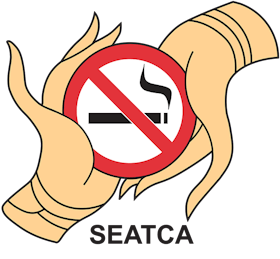Compelled by a Ministry of Health directive issued on Oct. 12, 2021, Myanmar was set to implement standardised tobacco packaging after 180 days (by April 10, 2022) followed by a 90-day phaseout of old tobacco packaging. However, transnational, and local cigarette and cheroot producers successfully lobbied for the implementation deadline to be pushed back till April 2023.
Myanmar was supposed to have been third in Asia, after Thailand and Singapore, among the 20 countries worldwide to have implemented standardised packaging. The new regulation requires the outer surfaces of tobacco product packages, such as boxes, cases, cartons, and others, to be presented in a standardised dull dark brown colour and to be flat, smooth, and devoid of any attractive designs or decorative elements. This measure would have enhanced the pictorial health warnings already required on 75 per cent of the front and back surfaces of tobacco product packaging.
Standardized packaging is a global best practice in fulfilment of the WHO Framework Convention on Tobacco Control (FCTC), to which Myanmar and 180 other countries are Parties. Because good health is a core component of sustainable development, strengthening the implementation of the WHO FCTC should be a key target of the Sustainable Development Goal on Health and Well-Being.
As part of a comprehensive strategy to denormalize and reduce tobacco use in the country, standardised packaging is cost-effective and prevents the tobacco industry from using packaging to attract and deceive consumers. Pictorial health warnings, when combined with standardised packaging, more effectively convey the dangers of tobacco use.
“Instead of postponing its implementation by 12 months, the government should have penalized tobacco companies for not complying by the April 10 deadline,” said Dr Ulysses Dorotheo, Executive Director of the Southeast Asia Tobacco Control Alliance.
“Only the tobacco industry will profit from this bad decision, while the government and people of Myanmar will suffer more diseases, healthcare costs, deaths, and their related socio-economic burden,” added Dorotheo. Myanmar has more than eight million smokers, and tobacco kills nearly 70,000 Burmese people annually.
SEATCA is a multi-sectoral non-governmental alliance promoting health and saving lives by assisting ASEAN countries to accelerate and effectively implement the tobacco control measures contained in the WHO FCTC. Acknowledged by governments, academic institutions, and civil society for its advancement of tobacco control in Southeast Asia, the WHO bestowed on SEATCA the World No Tobacco Day Award in 2014.
Publish your content with EB Premium
It's not about how many you reach. It's about who. Get your news, events, jobs and thought leadership seen by those who matter to you.


















